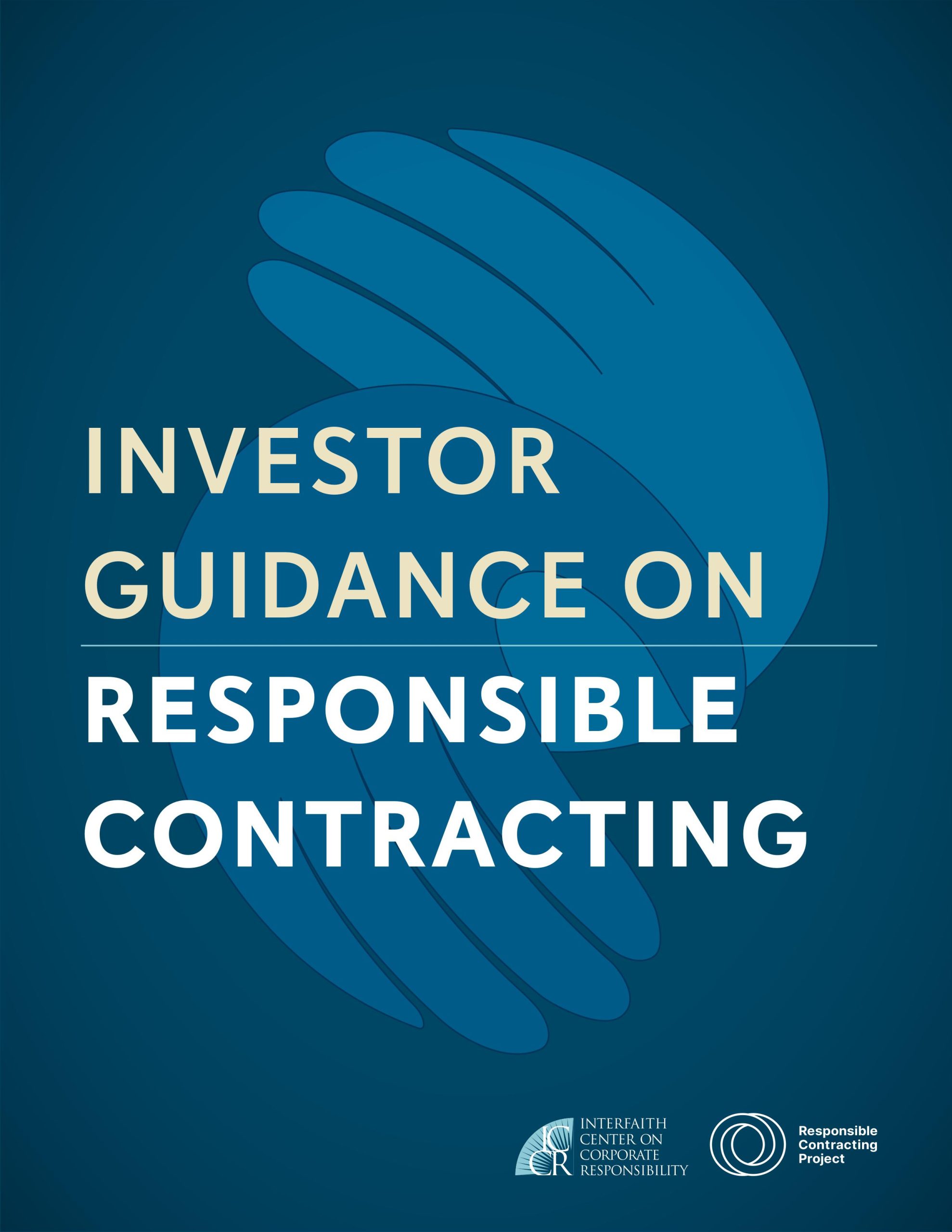Insight
Global supply chains are in need of a transformation, one that benefits all stakeholders, but especially workers and their communities, who are vulnerable to wage theft, exploitative and oppressive working conditions, human trafficking, race and gender discrimination and environmental injustice.
In their engagements with global brands, ICCR members engage companies with a higher risk of forced labor in their global supply chains across several sectors, including apparel and footwear, food and agriculture, and electronics. ICCR members press these companies to conduct comprehensive human rights and environmental due diligence, in line with the UN Guiding Principles for Business and Human Rights, and to adopt risk prevention, mitigation and remediation practices to reduce the adverse impact of their business operations. Included among such practices should be full supply chain traceability, responsible contracting principles that task both buyer and supplier with human rights obligations, systems for grievance reporting, retroactive and prospective remedy/compensation, and robust stakeholder engagement.
The emergence of new German and EU legislation will further compel companies doing business in these jurisdictions to comprehensively assess and respond to human rights risks in their entire supply chains. Recently revived enforcement of the U.S. prohibition on the import of goods made with forced labor should also increase the pressure on companies that import into the U.S. to understand and mitigate their supply chain risks.
Investors expect companies to be aware of racial inequality inherent in or that may be exacerbated by their supply chains. They should demonstrate any steps being taken to address racial equity risks in their operations and their supply chain and consider the impact of business decisions on racial equality.
Current Initiatives
Through a combination of dialogue and the filing shareholder resolutions, ICCR’s members are pressing companies to build a better, more inclusive, and more equitable supply chain system.













Our Impact
How ICCR is spurring the transformation of global labor conditions.
Equitable Global Supply Chains Staff Contacts
To learn more about our program, reach out to our staff:

Chavi is responsible for strategic campaign development for ICCR’s equitable global supply chain engagements.
Phone:(212) 870-2297
Email:cnana@iccr.org
Equitable Global Supply Chains Resources
Publications, blogs, investor statements, comment letters, webinar recordings and press releases related to investor action on equitable global supply chains.

This guidance is a resource for investors to use when discussing responsible purchasing and contracting issues with companies.

ICCR’s guiding principle is that sustainable corporations must look beyond the next earnings report to account for the full impact of their businesses on society and the environment, and must view the well-being of all of their stakeholders ― including their workers and the communities where they operate ― as integral to their long-term success. […]

In September of 2023, ICCR coordinated a group of investors in sending a letter to Nike to express significant concern over non-payment issues at two Nike suppliers.

The Investor Alliance for Human Rights has released guidance on the human rights crisis in Xinjiang Uyghur Autonomous Region in China (Uyghur Region). Since 2017, the Chinese government has placed an estimated 1.8 million predominantly Turkic and Muslim-majority peoples, including Uyghurs, Kazakhs, Kyrgyz, and Hui, in detention camps, prisons, and factories. “Human Rights Risks in […]

An ICCR report exploring how unethical labor recruiting puts migrant workers at risk for human trafficking. (2015)

ICCR’s guidance for corporations on specific steps they can take to promote ethical labor recruitment within their supply chains.





